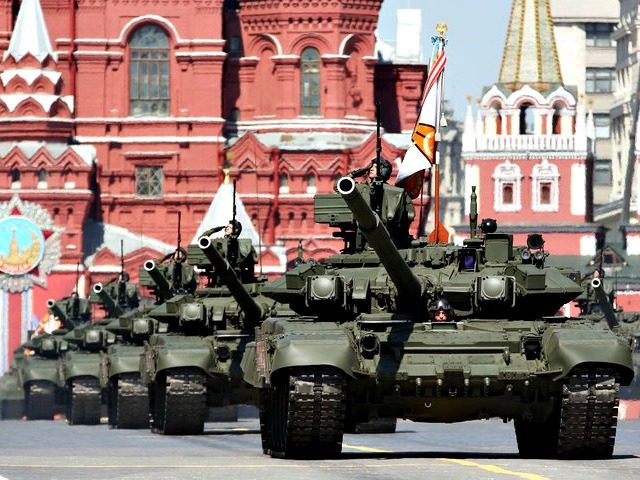The Trump administration wants to boost spending on deterring Russian aggression in Europe in 2019 by almost $2 billion, indicating continued wariness of Russia and support for European allies.
The Pentagon rolled out its budget request for fiscal year 2019, which included $6.5 billion for the European Deterrence Initiative (EDI), a U.S. military initiative aimed at reassuring European allies and deterring Russian aggression.
If approved by Congress, that would be a 35 percent increase from the $4.8 billion requested for fiscal year 2018.
The request marks a continued increase in spending for the EDI under the Trump administration.
In 2017, the Trump administration boosted funding for the EDI by $1.4 billion, bringing the total from $3.4 billion to $4.8 billion — a 41 percent increase from what the Obama administration had funded for 2016.
The EDI began as the European Reassurance Initiative under the Obama administration, after Russia invaded Ukraine and annexed the peninsula of Crimea in March 2014.
However, the Trump administration has continued boosting funding for the initiative — contrary to critics’ claims that the Trump administration has been soft on Russia.
Specifically, $3.2 million would go towards building up Army equipment stockpiled in Europe to increase “responsiveness” to any aggression, and “improve force effectiveness.”
About $1.9 million would go towards increasing the presence of U.S. forces in Europe. About $828.2 million would go towards expanding U.S. Air Force infrastructure.
About $290.8 million would go towards more bilateral and multilateral exercises. And $302.3 million would go to helping allies and partners build military capacity, with $200 million of that going to advise, train, and equip Ukrainian forces.
The administration’s 2019 budget request is based on the National Defense Strategy that was unveiled last month. The strategy is aimed at widening the shrinking military capability gap between the U.S. and strategic competitors China and Russia.

COMMENTS
Please let us know if you're having issues with commenting.